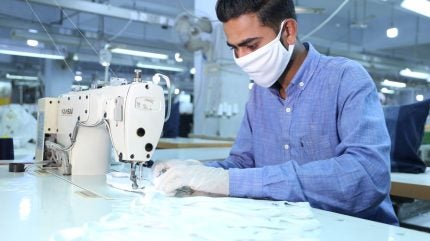
The International Accord shared an update of its latest supplier briefing in Pakistan.
In the update it said 138 global brands sourcing from Pakistan have signed the Pakistan Accord and have committed to ensuring workplace health and safety in collaboration with their sourcing partners.
Among the latest signatories are Homefield Apparel, River Island Clothing Co, Wincraft and Collars & Co.

Discover B2B Marketing That Performs
Combine business intelligence and editorial excellence to reach engaged professionals across 36 leading media platforms.
Pakistan Accord’s signatory brands are headquartered in 18 countries across Europe, the US, Australia, Hong Kong, Türkiye and Japan, and include the world’s largest clothing brands and retailers. Collectively, these brands source over $3.5bn worth of goods from over 645 suppliers in Pakistan employing over 655,000 workers.
Latest developments in Pakistan Accord
Over 245 factories across Karachi, Lahore, and Faisalabad have been inspected for fire, electrical, and structural safety.
51 boilers have been visually inspected under the Pakistan Accord’s Boiler Safety programme. The Boiler Safety Team commenced inspections in February 2025.
The Pakistan Accord has made significant progress in its workplace programmes across factories.

US Tariffs are shifting - will you react or anticipate?
Don’t let policy changes catch you off guard. Stay proactive with real-time data and expert analysis.
By GlobalDataAs of 25 June 2025, initial meetings have been conducted for 204 factories reaching 267,944 workers;
- Safety Committee Training has been piloted for two factories
- Information on how to file complaints under the Pakistan Accord Complaints Mechanism has been distributed to 198 factories
- 85 complaints have been received by the Pakistan Accord Complaints Mechanism of which 58 (68%) were related to Occupational Safety and Health (OSH). The most common types of complaint include: drinking water quality/temperature, injuries/deaths from accidents at work, heat stress, and lack of provision of PPE.
Remediation measures being undertaken
Inspected factories are actively working on remediating the following safety hazards:
Electrical Safety: Common issues include overloaded circuits, improper cable sizing, poor installation, and missing thermographic testing, often leading to undetected hot spots. Many factories also lack accurate Single Line Diagrams (SLDs). To address these, factories are training electrical staff, conducting regular thermographic scans, updating SLDs, and reducing combustible materials near panels to mitigate fire risks.
Fire Safety: Frequent non-compliance includes locked exit doors or doors that open against escape routes, as well as missing handrails along exits, both of which hinder safe evacuation. Factories are ensuring exit doors open in the direction of escape without locks and are installing handrails to improve safety during emergencies.
Structural Safety: Overloaded structures from water tanks or added floors, along with visible cracks, pose significant structural safety risks. Factories are reassessing structural loads, reducing stress on key columns, and repairing cracks to ensure long-term building stability.
Remediation Costing Tool developed
The Accord has developed a Remediation Costing Tool to help factories covered under the Accord better estimate and plan for their remediation expenses. By supporting more accurate and realistic budgeting, the tool enables improved remediation planning, helping prevent delays in remediation and avoidable non-compliance issues
The tool draws on average market costs of key safety items identified in a factory’s Corrective Action Plan (CAP), such as fire doors, fire alarms, sprinklers and standpipe systems, and adjusts for cost variations based on factory size.
To ensure its effectiveness, the Remediation Costing Tool will initially be piloted with a small group of factories. Feedback and insights from this phase will inform ongoing refinements, incorporating real-world experience, evolving market data, and user input. Pakistan Accord staff will receive comprehensive training on the tool, with a broader rollout planned in the coming months to make it accessible to all covered factories.
The Accord has also developed guidance to support factories in identifying and engaging suitably qualified engineers to carry out detailed assessments and remediation efforts detailed in the factory’s Corrective Action Plan.
The intent is to ensure that all engaged consultants possess the requisite qualifications, technical expertise, and professional integrity necessary to deliver safe, code-compliant, and high-quality engineering design and advisory services in alignment with the factory’s operational objectives and project-specific requirements.
This initiative is part of the Pakistan Accord’s broader commitment to promoting continuous improvement in workplace safety across Pakistan’s garment and textile sector. The guidance will be published as a resource for factories on the Accord website in the coming days.





